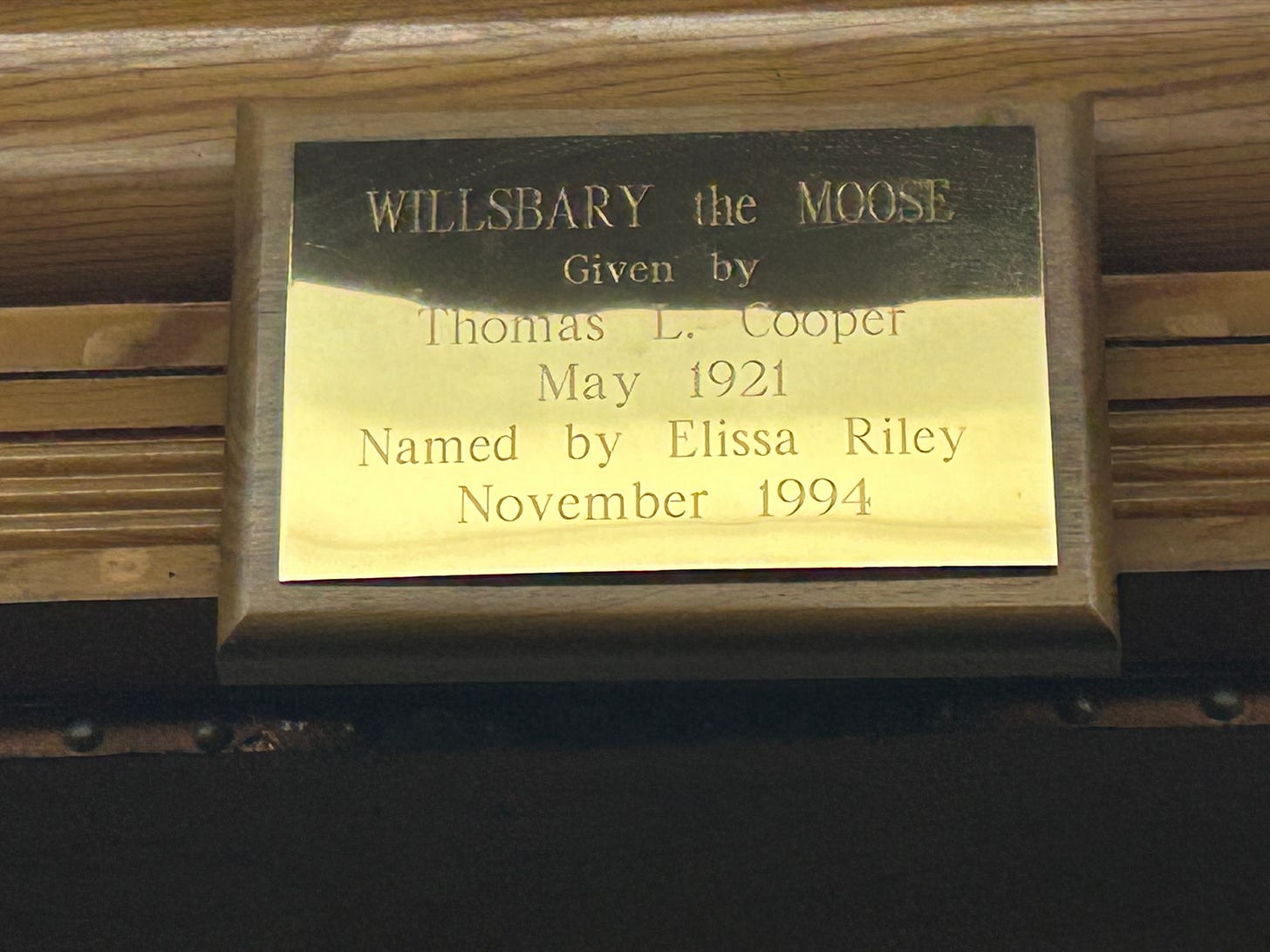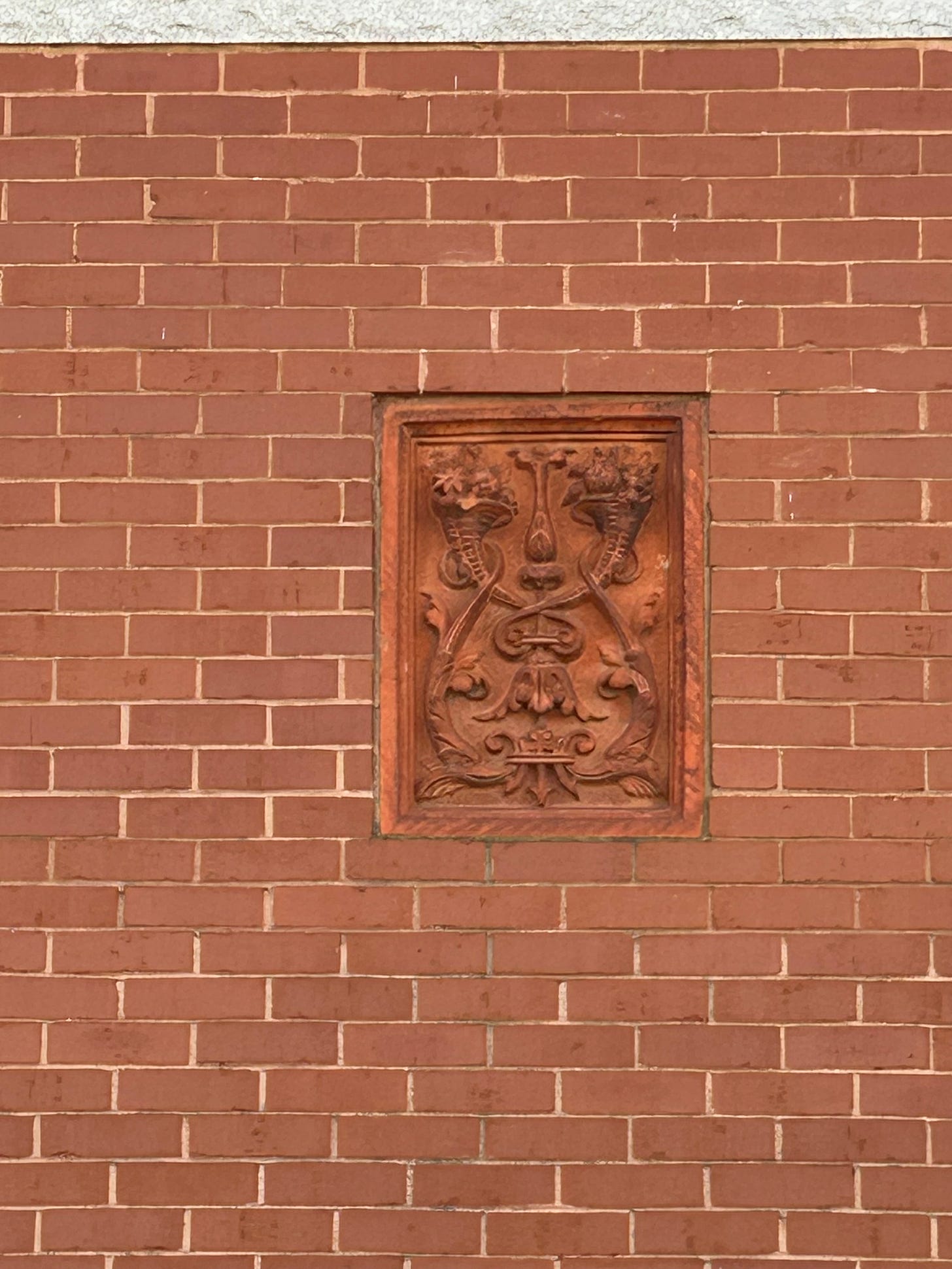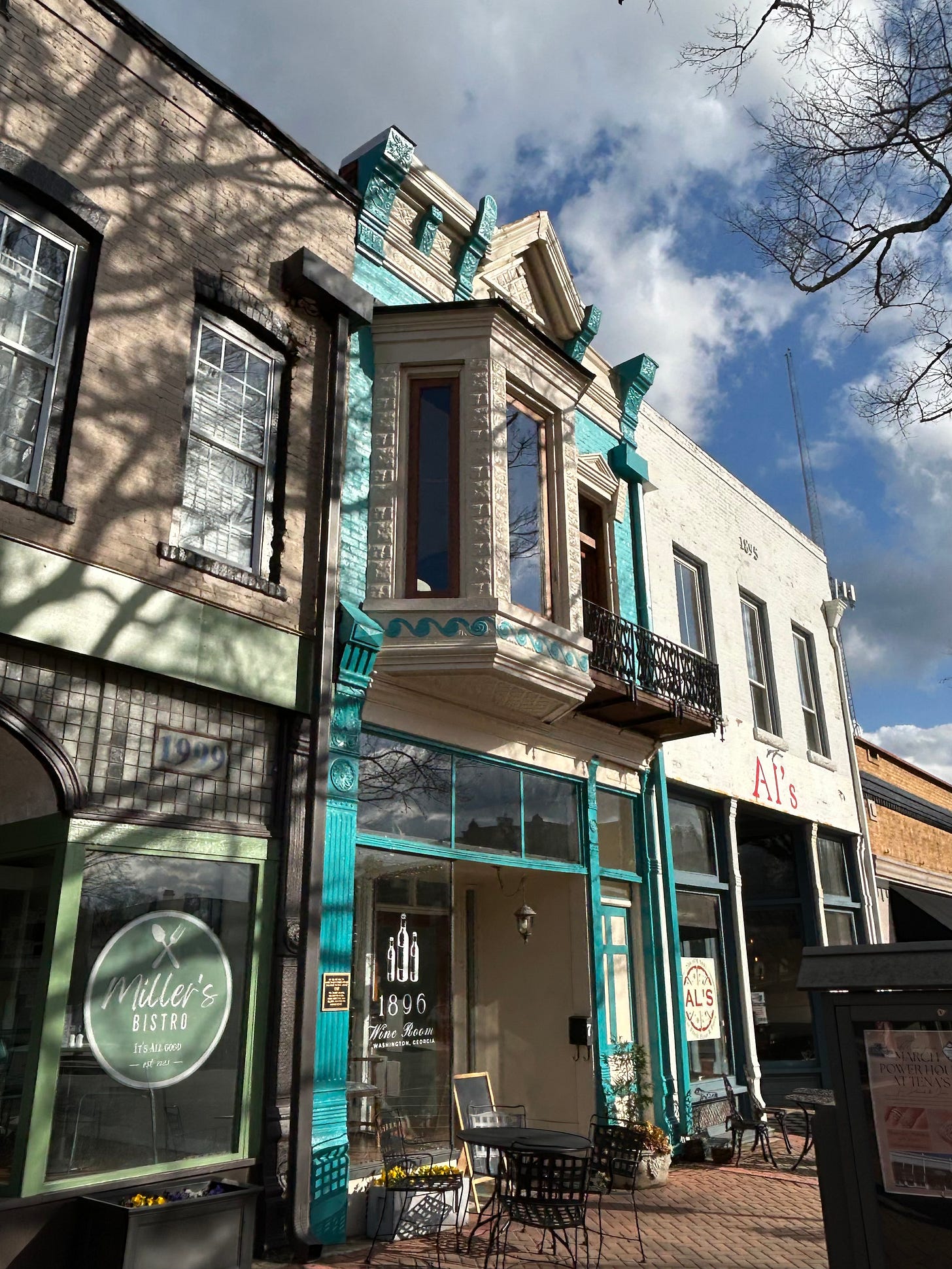All photos by Michael E. Buckner
Washington, Georgia, is a small town (population 3,634), the county seat of Wilkes County, north of Interstate-20, between Atlanta and Augusta. It is not far from the home (now a Georgia State Park/Historical Site) of Confederate VP Alexander Stephens. It claims to have “more antebellum homes per square mile than any other city [sic] in the United States.” I don’t care all that much about antebellum homes, but I strongly recommend visiting Washington if you’re handy to it. (Bring United States cash, though, because several sites don’t take credit cards. Or Confederate dollars.)
Why visit?
Seen enough? And that’s just the library! (Yes, including the moose, “Willsbary,” in the first photo—and the stained glass.)
And downtown features a grand courthouse:
And an otherwise interesting downtown—
But that incredible library (one of the ten most beautiful in Georgia, by golly) and interesting downtown and antebellum homes—all of that is not really what draws me, though.
It’s the history. The town was named for General George Washington—pre-President Washington. Nearby 360 patriots defeated more than 800 loyalists in the Battle of Kettle Creek on 14 February 1779.
And, cast your eyes eighty years or so later and there’s plenty of bizarrely pro-Confederate sentiment permanently inscribed around town:
You probably didn’t realize that the Confederate Rebels were fighting and dying for a “just union,” “American liberties,” and “constitutional government.” Never mind that the chief liberties they struggled to preserve were the liberties to own other people and to preserve White Supremacy.
And most interesting of all—to an old virulently anti-Confederate unionist like me, at least—is the footnote to history that Washington, Georgia, provided on 4 May 1865:
. . . tragic surrenders at Appomattox . . . “Constitutional rights,” forever dead.
Sheesh.
For what it’s worth, the current citizens of this “city” don’t seem to harbor the malicious racism and pro-slavery opinions that their monuments and historical markers display.
But here’s what matters most to me. Let’s review the timeline. From the Internet:
On April 9, 1865, General Robert E. Lee, commander of the Confederate Army of Northern Virginia, surrendered to Union General Ulysses S. Grant at Appomattox Court House, Virginia, effectively ending the Civil War in Virginia and signaling the end of the war.
Less than a month later, President Davis performed his last official act, at the last cabinet meeting of the Confederate States, in Washington, Georgia.
So, the Confederacy in one sense officially died right here.
And that is worth celebrating.
Note: Anyone may copy and publish what I or my guests write, provided proper credit is given, that it’s not done for commercial purposes, that I am notified of the copying (you can just leave a comment saying where the copy is being published), and provided that what we write is not quoted out of context or distorted.
Thanks again for reading Letters … . Subscribe for free (always) to receive new posts and support my work.















The Confederacy has died, but the U.S. still has far too many voters who seemingly would welcome it back if they could. MAGAs are certainly trying.
But, hey ... we're that "other" Washington: Seattle, Washington!
And I'm happy to say we live in King County (named after Dr. King) in a blue state.
I have been to Washington, Georgia. Lovely town.
History is full of ironies. A town named after the greatest patriot honors the memory of the greatest traitor. Crummy bastard. Damned lucky he wasn't hanged.
If I ever visit Washington, GA again, I will be humming:
The Union forever! Hurrah, boys, hurrah!
Down with the traitor, up with the star;
While we rally round the flag, boys, rally once again,
Shouting the battle cry of freedom!